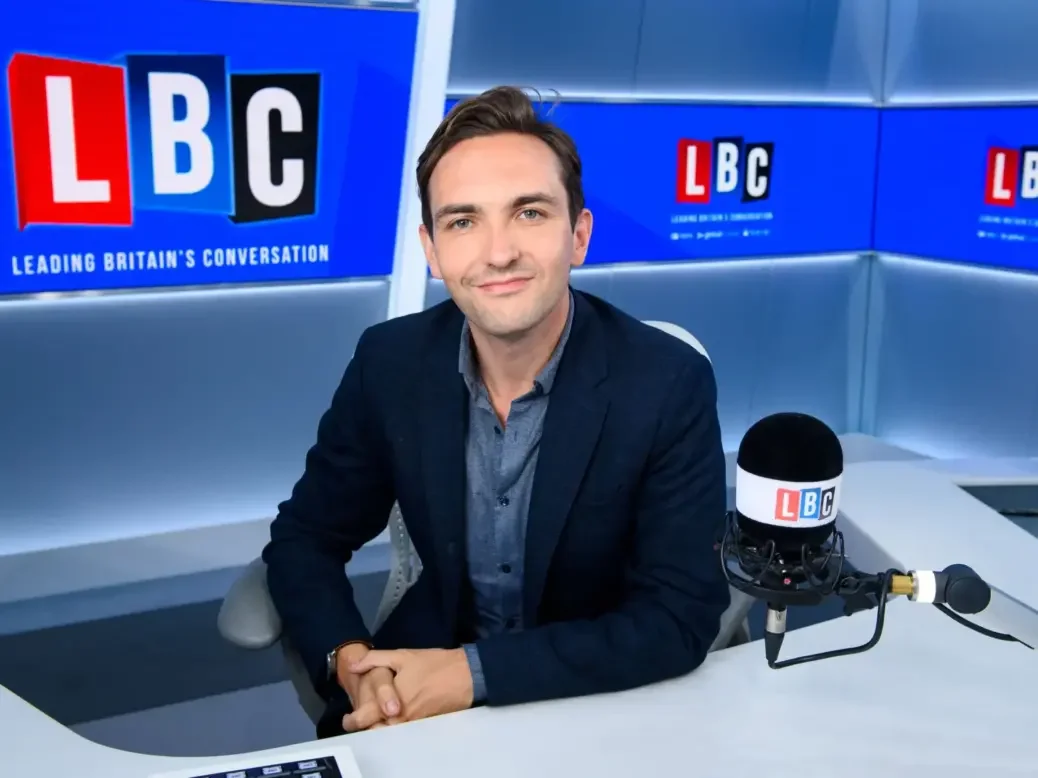
Podcasts are “the future of news” and a likely way news organisations will pursue younger audiences, according to The News Agents co-presenter Lewis Goodall.
Speaking at The Podcast Show in London on Wednesday Goodall said podcasts had allowed him to report investigations in greater “richness” and in a way “no other media” could have managed.
Interviewed by LBC host James O’Brien — a fellow Global employee — Goodall said that while The News Agents’ audience “of course” enjoyed weekly stories about goings-on in Westminster, “they are hungry for stories they might not have heard”.
He cited a recent story the podcast reported in tandem with activists Hope Not Hate showing that Telegraph bidder and GB News funder Paul Marshall had regularly “liked” far-right content on Twitter/X. Goodall said the episode had been “one of our biggest shows of the year”.
“We know from the audience that they are hungry for, that they like it, when we get scoops and we do big stories.”
The News Agents is co-presented by Goodall, a former Sky News and Newsnight journalist, alongside former Newsnight presenter Emily Maitlis and former BBC News North America editor Jon Sopel. Goodall also hosts a spin-off named The News Agents Investigates.
Referring to a recent episode of The News Agents in which Goodall travelled to Georgia to cover protests against the country’s new foreign agents law, he told O’Brien: “There is no other media that I can think of that could have told it in that way, at such length and richness.
“And as I say, to me, I actually think that with the decline of TV news in particular… it’s gonna become more and more common.
“The possibility for podcasts to do that kind of really serious, nuanced, on-the-ground reporting is limitless, actually, and I think you’ll probably see other big news organisations turn to that, at least as a way of trying to interest younger audiences.”
He added: “What you can’t do, I think — I think this is a mistake — is just chop up the stuff that you might be doing for, say, the TV or radio or whatever, and then just smash it together in some sort of podcast form. I don’t think you can do that because I think the audiences are too savvy, are too sophisticated for it.”
Asked by O’Brien whether it had been “weird” moving from the ad-free BBC to a commercial publisher where he is expected to read out sponsor messages, Goodall said: “I found it weird that quite a few people found it weird, or responded saying: ‘Oh I can’t believe you’re reading that [advert] for that [company]!’ Not because it was a problem with the company in particular, just that [I was] doing commercial stuff.
“My response to that, always, is: well how do you think this is getting paid for?”
He added: “Do you go into the bookshop and say: ‘I can’t believe your book is behind this massive paywall!’ Waterstones is just a big paywall!”
“These elements that we’ve been talking about — about podcasts taking up some of the slack from the traditional news media, in terms of doing on the ground stuff — this is prestige stuff, stuff that is great to have your name and brand associated with, because it is, I think, the future of news.”
Email pged@pressgazette.co.uk to point out mistakes, provide story tips or send in a letter for publication on our "Letters Page" blog
